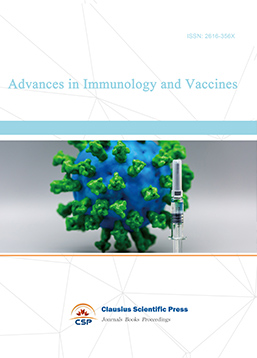The treatment of depression after stroke based on the theory of "five essence"
DOI: 10.23977/medcm.2023.050310 | Downloads: 24 | Views: 1192
Author(s)
Zirui Gong 1, Bingcang Yan 2
Affiliation(s)
1 Shaanxi University of Traditional Chinese Medicine, Xianyang, Shaanxi, China
2 Xi'an Hospital of Traditional Chinese Medicine Encephalopathy Hospital, Xi'an, China
Corresponding Author
Bingcang YanABSTRACT
With the increasing number of people suffering from stroke, the important complication of poststroke depression (Post stroke depression, PSD) is also getting more and more attention. Liver loss and liver qi stagnation are the key pathogenesis of post-stroke depression, and deficiency of heart, liver, spleen and kidney is the main pathological basis of depression after stroke. "Five essence place" theory points out that "essence qi and liver worry", heart, liver, spleen, kidney four viscera essence qi deficiency, deficiency phase, "and in the liver worry", there will be low mood, interest decline, slow thinking and other symptoms of depression after stroke, clinical can be treated from the liver.
KEYWORDS
Depression after stroke, five essence, essence gas and liverCITE THIS PAPER
Zirui Gong, Bingcang Yan, The treatment of depression after stroke based on the theory of "five essence". MEDS Chinese Medicine (2023) Vol. 5: 69-72. DOI: http://dx.doi.org/10.23977/medcm.2023.050310.
REFERENCES
[1] Wei Rongyou, Yang Yanping, Wu Xiaodi, et al. Based on the discussion of "five-state human" [J]. Integrated traditional Chinese and western medicine and painstaking efforts Electronic Journal of Management Diseases, 2017,5 (31): 24 + 26.
[2] Qi Xianghua, Teng Jing, Wu Xiaodi, and so on. Theory and practice of depressed state from the perspective of modern Chinese medicine [M]. Beijing: People's Military Medical Publishing House, 2014.
[3] Yang Xiaohua. A superficial exploration of the etiology of depression after stroke [J]. Guangming Traditional Chinese Medicine, 2017,32 (12): 1802-1804.
[4] Wang, YingyingHu, XiwenHan, JinfangScalabrini, AndreaHu, YutingHu, ZhiguoTan, ZhonglinZhang, Jianfeng Northoff, Georg. Time is of essence-Abnormal time perspectives mediate the impact of childhood trauma on depression severity[J]. Journal of psychiatric research, 2021, 137(1).
[5] Buijck B I, Zuidema S U, Eijk S V, et al. Is patient-grouping on basis of condition on admission indicative for discharge destination in geriatric stroke patients after rehabilitation in skilled nursing facilities? The results of a cluster analysis[J]. BMC Health Services Research, 2012(1).
[6] Tian Daihua. Huangdi Neijing asked [M]. Beijing: People's Health Publishing House, 2005.
[7] Ding Yuanqing. Exploring the pathogenesis of stroke based on the theory of cardiac mainstay blood vessels [J]. Shandong Journal of Traditional Chinese Medicine, 2018 (01): 1-3.
[8] Yang Tao, Zhao Mingjing, Meng Wei, et al. The scientific basis and clinical application of "mind and god" [C]. Proceedings of the 13th Academic Symposium of the Fourth Experimental Medical Professional Committee of the Chinese Society of Integrated Traditional Chinese and Western Medicine, 2016: 22-26.
[9] Deng Tietao. The scientific nature of the mind [J]. New Traditional Chinese Medicine, 2003, 35 (1): 15-16.
[10] Xu Lesi, Chen Yu, Wang Mengsha, et al. Study on TCM clinical syndrome differentiation of depression [J]. Journal of Hubei University of Traditional Chinese Medicine. 2017, 19 (3): 37-40.
| Downloads: | 8914 |
|---|---|
| Visits: | 565101 |
Sponsors, Associates, and Links
-
MEDS Clinical Medicine

-
Journal of Neurobiology and Genetics

-
Medical Imaging and Nuclear Medicine

-
Bacterial Genetics and Ecology

-
Transactions on Cancer

-
Journal of Biophysics and Ecology

-
Journal of Animal Science and Veterinary

-
Academic Journal of Biochemistry and Molecular Biology

-
Transactions on Cell and Developmental Biology

-
Rehabilitation Engineering & Assistive Technology

-
Orthopaedics and Sports Medicine

-
Hematology and Stem Cell

-
Journal of Intelligent Informatics and Biomedical Engineering

-
MEDS Basic Medicine

-
MEDS Stomatology

-
MEDS Public Health and Preventive Medicine

-
Journal of Enzyme Engineering

-
Advances in Industrial Pharmacy and Pharmaceutical Sciences

-
Bacteriology and Microbiology

-
Advances in Physiology and Pathophysiology

-
Journal of Vision and Ophthalmology

-
Frontiers of Obstetrics and Gynecology

-
Digestive Disease and Diabetes

-
Advances in Immunology and Vaccines

-
Nanomedicine and Drug Delivery

-
Cardiology and Vascular System

-
Pediatrics and Child Health

-
Journal of Reproductive Medicine and Contraception

-
Journal of Respiratory and Lung Disease

-
Journal of Bioinformatics and Biomedicine


 Download as PDF
Download as PDF